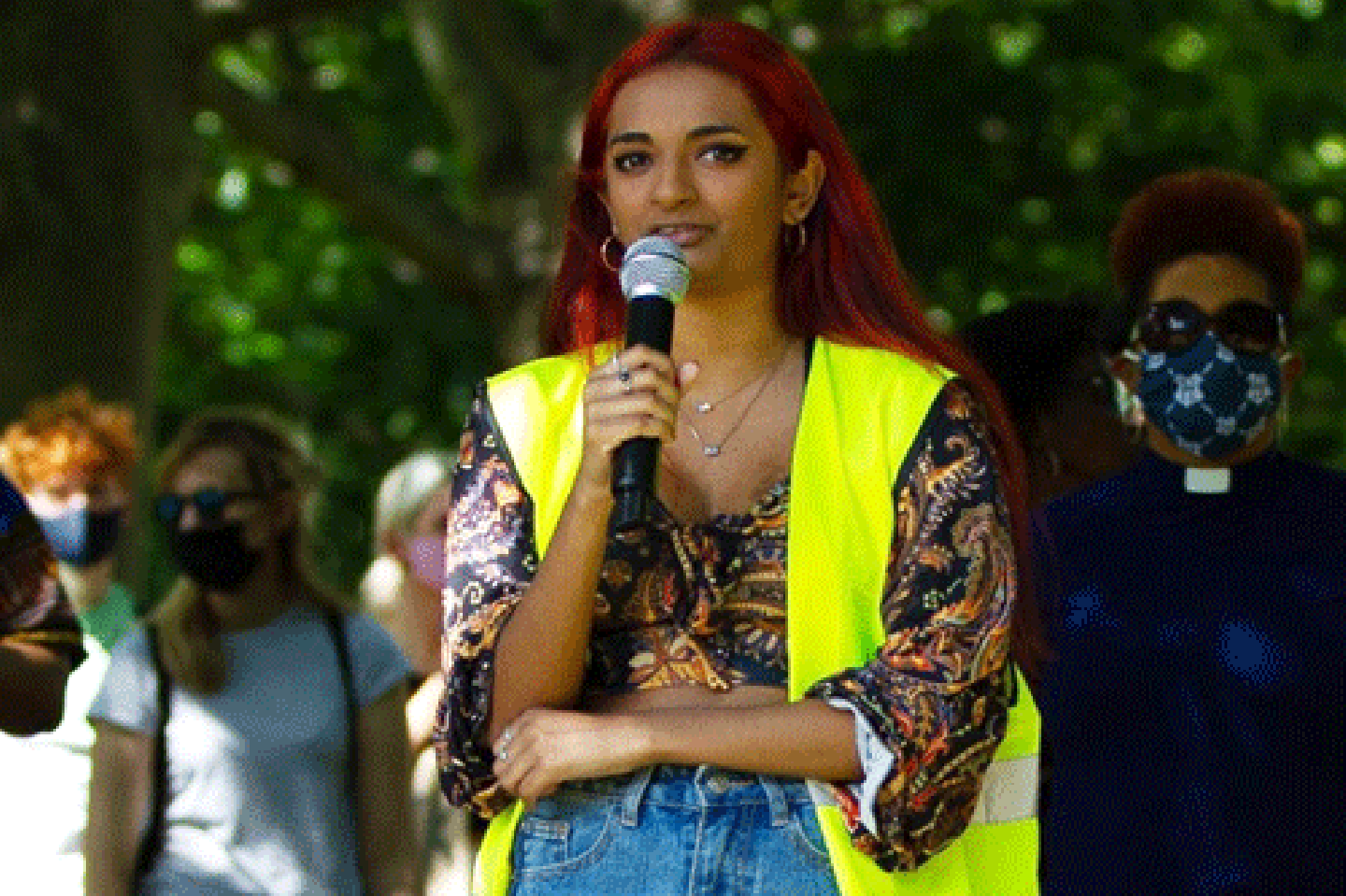“I’ve had people tell me that I should be deported and to go back from where I came from – I was born in Suffolk.” First-year journalism student talks racism in the UK and why the BLM protests are calling for change.
Published (Updated )
Born in an East England seaside town and raised in Chelmsford Essex, Malaika Gangooly (BA Journalism), says she grew up looking different to everyone around her.
At school she said she always received comments about her skin colour and her name.

Now 19-years-old, the City student has spearheaded the Black Lives Matter (BLM) protests in Chelmsford calling for an end to racial discrimination in the wake of George Floyd’s murder at the hands of American police officers.
“I have always been politically active,” said Malaika. “However, there are only so many petitions you can sign before you feel that you have to physically do something,” she continued.
“The murder of George Floyd shook me. We were seeing clear footage of the racism that we know still exists in the world.
“I felt like I had to do something, so with the help of four of my friends, we set up @Chelmsfordforblacklives on Instagram. With about an hour we had hundreds of people getting in touch saying they wanted to protest with us.
“We protested at Central Park in Chelmsford on Saturday 13th June. We had people march at certain times to try and ensure we were abiding by social distancing rules.
We shouldn’t have to put up with racism
Soon to enter her second year studying journalism at City, Malaika says she is no stranger to racism.
“I have been called ‘blackie’, ‘poo face’ and some other things much worse. At the time I didn’t even realise that was racism, it just felt like a normal part of growing up in England,” Malaika said.
“However, that is what keeps me going. I don’t feel sad about the racist comments – I feel angry and want to do more to fight against them.
“At the moment me and my team are going to try and make it an annual event in Chelmsford so that no one has to suffer racist abuse in silence.
“We are also working on creating materials for schools which will help teach black history. My old sixth form, Moulsham High School is one of the places we have been working with and we hope to find more.”

There have been many protests since the killing for George Floyd and many more before it, admits Malaika. However, the BLM protests represent one of the largest civil rights movement in history and Malaika hopes that the movement can create progress.
“I know the level of opponent that we are up against. Racism is so intertwined in our society and in our lives.
“However, a lot of things feel different this time, we have support from huge amounts of white people. These are the people we need the most – if they can use their privilege and voices to help our course things will change.
I hope that these protests get people talking about racism. We need a generational conversation where young people talk to their grandparents about racism. It can hurt to admit that your country, city or home is racist, but that doesn’t hurt anywhere near as much as being racially abused.
An inspiration to Malaika’s work is Coral James O'Connor, Lecturer in Journalism, speaking on her student’s activism, Coral said: “I believe Malaika speaks to these words of my favourite poem by Maya Angelou. 'You may shoot me with your words, you may cut me with your eyes, you may kill me with your fatefulness, but still like air, I'll rise.'
“I'm touched that Malaika believes my lectures inspired her but the reality is she is the inspiration to us all, not just to think of these concerns many of us face, but to act positively on those concerns."
